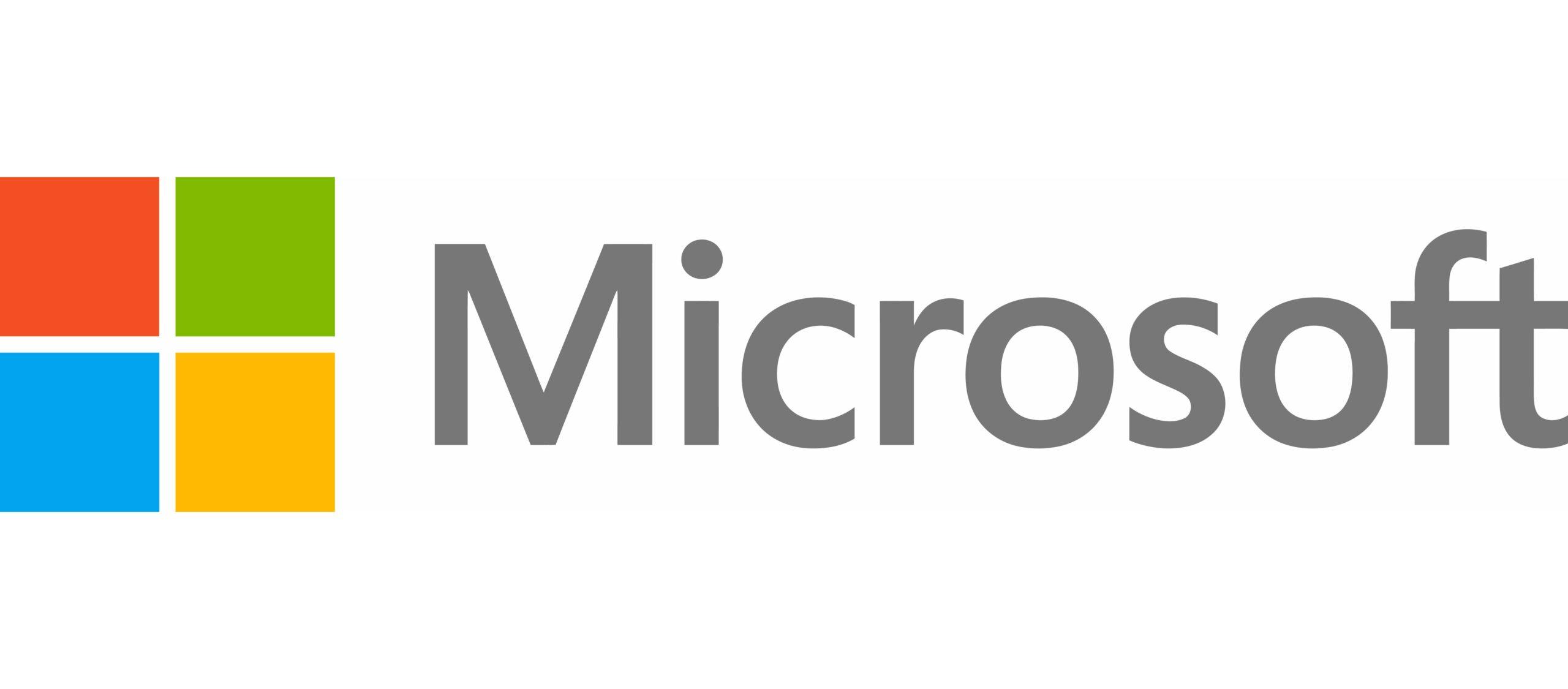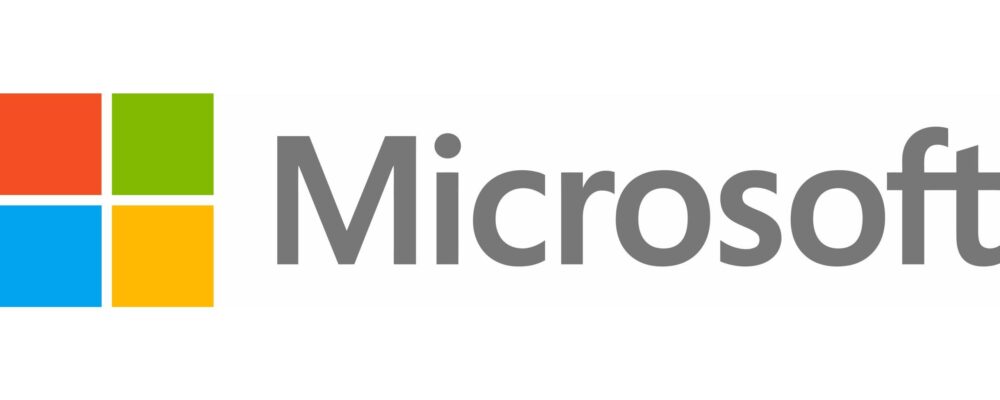As we bring Microsoft Copilot to more customers around the world, people are already unlocking its value and learning the power of generative AI at work. Our recent Copilot customer research shows that 11 minutes of time savings is all it takes for most people to feel like AI is useful, and that after 11 weeks—about one business quarter—most users say it improves their work across key areas like productivity and having fewer meetings.
Microsoft Teams is where work happens, and now we’re excited to announce new Copilot in Teams enhancements that will supercharge collaboration and make hybrid meetings even better.
Read on for all the details.

Microsoft Teams
Collaborate more effectively with a faster, simpler, smarter, and more flexible Teams.
Making collaboration smarter
Based on customer feedback, in May, we are enhancing the Copilot in meeting experience. Copilot in meetings will now provide information and insights from the meeting chat in addition to the meeting transcript. When you open Copilot in the meeting chat, you will have a more comprehensive and inclusive view of what was covered in the meeting, whether it was spoken (transcript) or written (chat).
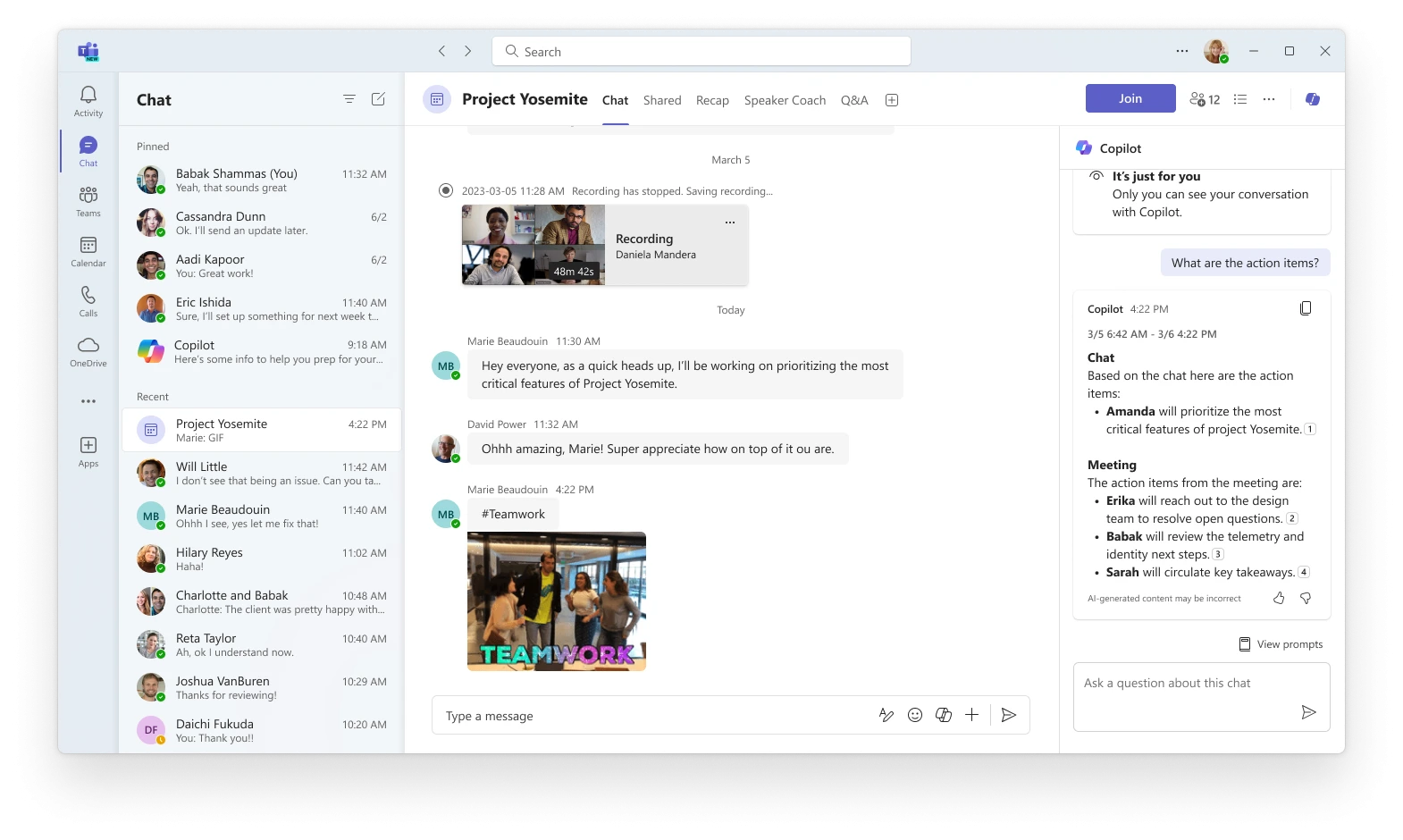
In April, with Copilot in Teams chat compose box, you can prompt Copilot to adjust your message and provide a custom rewritten version. For example, Copilot can adjust your message to add a call to action, or even to make you sound like a pirate. Soon, you will also be able to generate a new message with a prompt by typing just a few words in Teams chat. This will save you time thinking about where to start, and let you adapt and edit messages with ease.
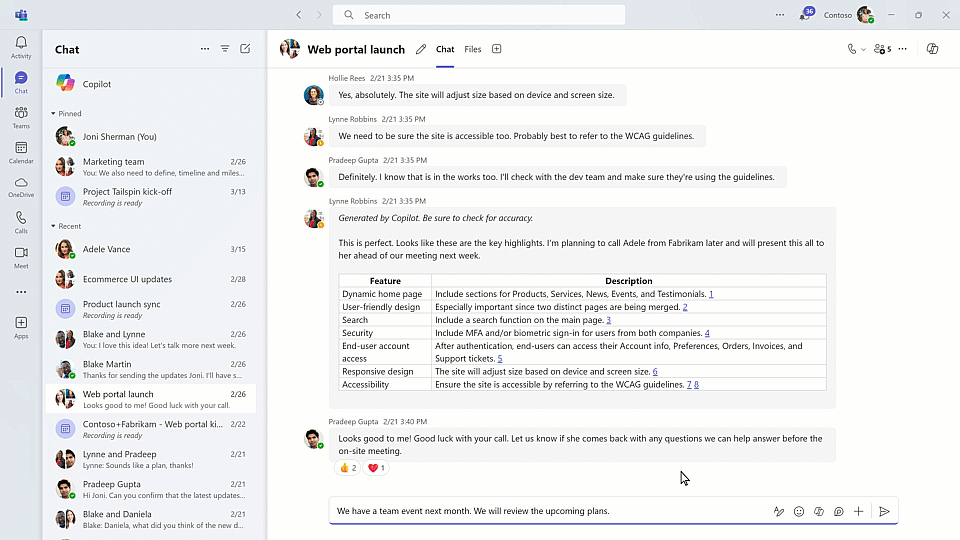
Intelligent call recap brings one of the best meetings AI features to calling. Intelligent call recap can provide AI-powered insights and recaps of your VoIP and Public Switched Telephone Network calls in Teams. This feature will be generally available in June with Teams Premium and Copilot.
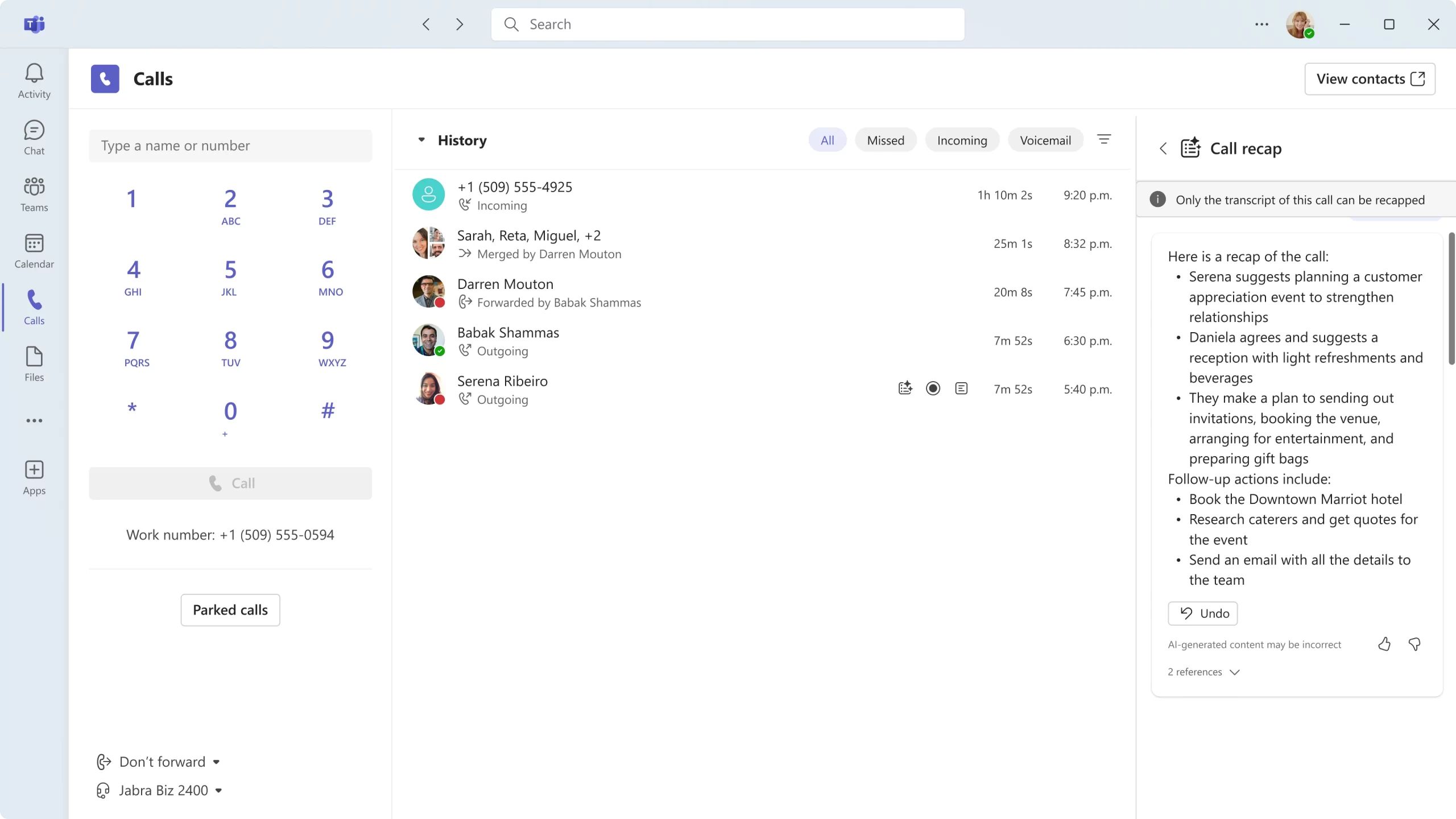
Making hybrid meetings better
Hybrid meetings with attendees participating both in-room and remote can be less than ideal. Remote participants often have a hard time knowing who is in the room or who is speaking. Microsoft IntelliFrame helps hybrid meeting attendees to see people in Teams Rooms more clearly, using Cloud AI to identify and capture individual video feeds of each in-room participant. We’ve now made it even easier to ensure your meeting spaces are ready for hybrid work by turning on Intelliframe by default on Teams Rooms devices. More people than ever are now experiencing the power of great hybrid meetings.
The remote experience continues to get better as automatic camera switching for IntelliFrame becomes available later this year. Using AI to determine and select the optimized view of each person in a meeting room, this capability ensures that every remote participant knows who is in the room at all times. It compares multiple video sources, such as individual laptop and room cameras, and ensures the room captures, segments, and presents the best head pose for the benefit of remote participants—for example, choosing laptop video feeds instead of the front of room camera when multiple people are in the same room. If a camera view for someone in the room becomes obstructed, another camera view will be chosen to provide remote participants with a clear view.
Not all Teams Rooms have intelligent speakers, but starting in public preview in April 2024, speaker recognition capabilities for any existing microphone will improve transcript accuracy and Copilot provided meeting insights for Teams Rooms on Windows environments. When you join a meeting from a Teams Room, what you say in the meeting is isolated and attributed to you in the transcript, simply by enrolling your voice and face profiles.
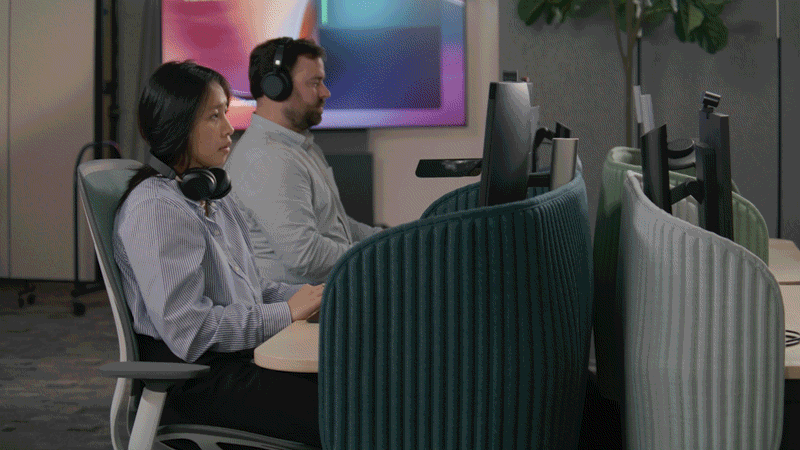
When you need to join a call or meeting in a noisy location, voice isolation, generally available in April 2024, can help ensure that only your voice is heard. Once you complete a short enrollment process, this AI-based advanced noise suppression feature will isolate your voice and eliminate all other background noise—including other people’s voices.
Windows Autopilot for Teams Rooms reduces the time it takes IT admins to deploy Teams Rooms from days to minutes. This new integration with Windows Autopilot and auto-login of Teams Rooms on Windows offers low-friction provisioning that will enable devices to sign in to the account associated with the Autopilot device seamlessly. Additionally, the Microsoft Teams Rooms for Windows app automatically checks for and installs new applications and Windows updates during the initial setup, ensuring devices are protected and up to date on day one. Autopilot for Teams Rooms will be in public preview this week.
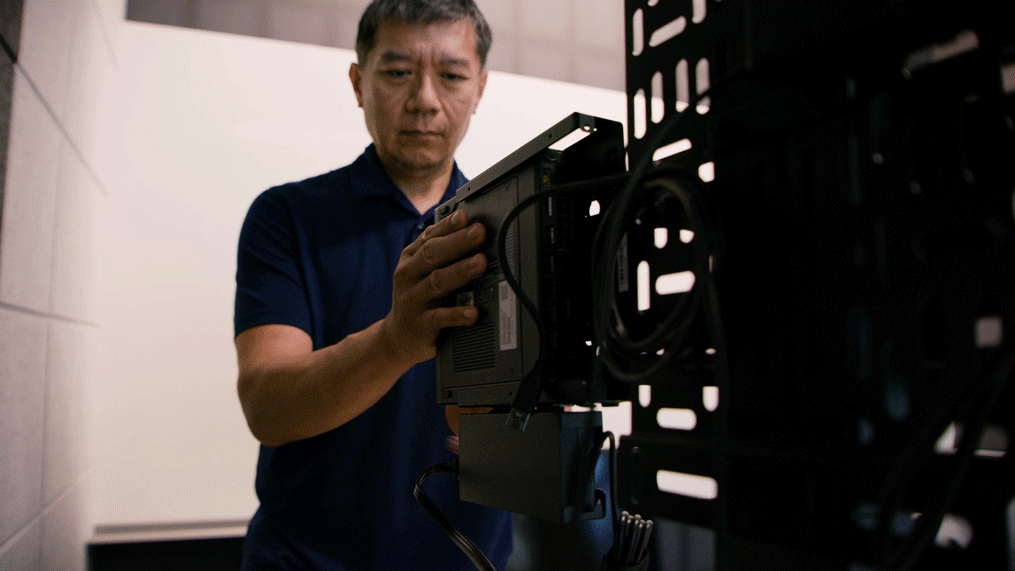
Our Bring-Your-Own Device (BYOD) ecosystem is also growing. Shared Display mode is now generally available and ensures that you are in full control of the content you share to a display. Support for intelligent speakers in BYOD spaces will allow in-person meeting participants to attribute speech to individual attendees. This feature will enter public preview later this year.
Finally, BYOD IT Management now gives IT admins the power to easily discover, inventory, and generate insights about BYOD peripherals, and will be generally available in April 2024.
Expanding Teams Phone and customer-facing role capabilities
Teams Phone gives you a reliable and simple way to connect, no matter where you are. As of April 1, 2024, we’re updating our Teams Phone financially-backed service level agreement to 99.999% uptime. Additionally, we’re continuing to expand survivable calling capabilities made possible with the Survivable Branch Appliance capabilities. Starting next quarter, Teams Phone will support call transfer, forwarding, and incoming calls from call queues or auto attendants in the event of a network outage.
To make it easier to communicate on the go, Teams Phone Mobile gives you a single number across both Teams and your mobile device native dialer. We are excited to announce that several new partners including AT&T, Odido, Virgin Media O2, and Vodafone UK will begin offering Teams Phone Mobile later this year.
As more customers standardize on Teams Phone, we’re adding additional capabilities for customer-facing work. The new Queues app creates a workspace for both supervisors and employees engaging with customer calls. When a call comes into the queue, users are notified and assigned with the options to accept or transfer the call. Supervisors can add users to different queues, supervise queues, manage workloads, monitor performance, and train team members to better engage with customers. The Queues app is currently in private preview and will be generally available in June with Teams Premium. Please connect with your Microsoft representative or visit the Queues app nomination form to learn more and be considered for the preview.
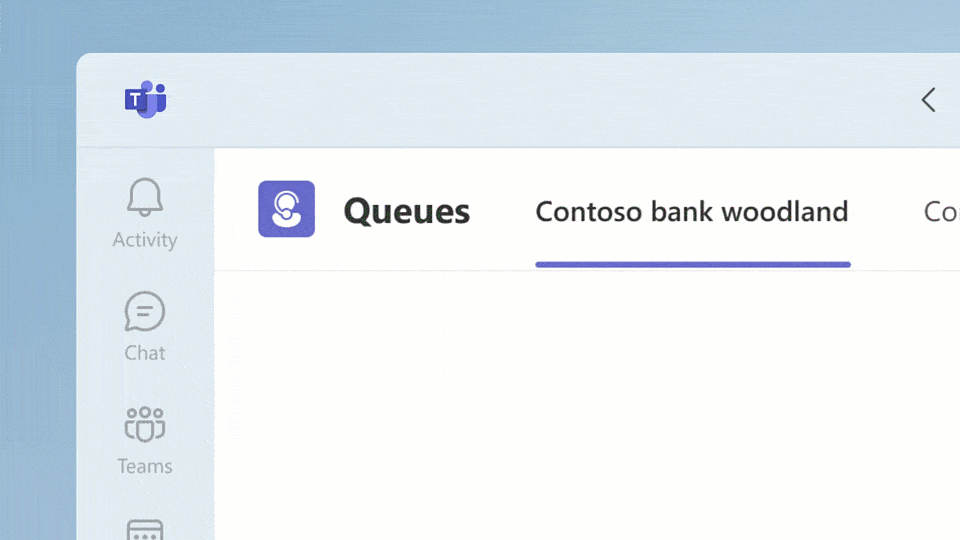
Soon, an enhancement to Copilot for Service will allow agents to chat with Copilot during a meeting and ask questions over cases and contacts, summarize cases, reason over knowledge, and more. This builds on the current capability of using Copilot in Teams to browse and update CRM records. Download the Copilot for Service app for Teams and Outlook.
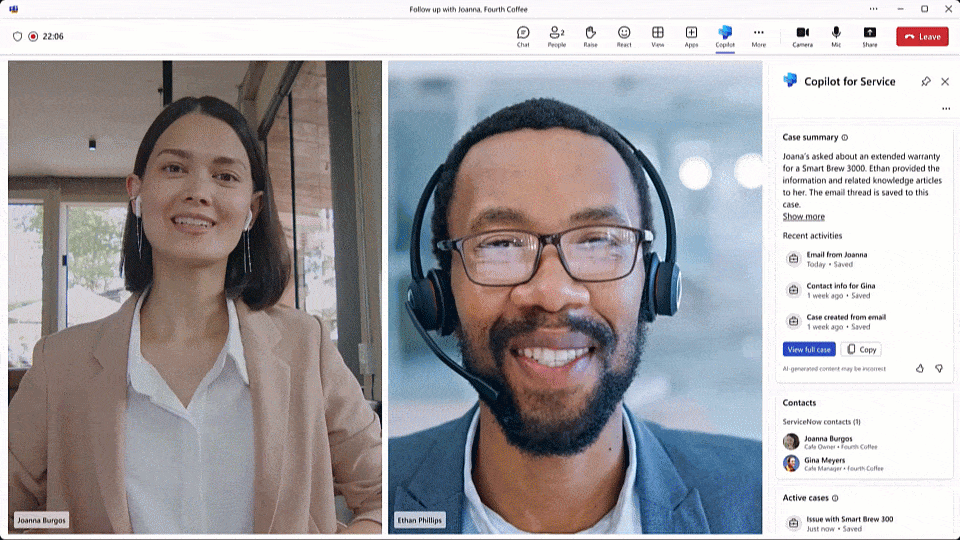
What’s next
Our vision with Copilot is to bring the power of generative AI to everyone. We are committed to continue to improve the Copilot experience in Teams to help everyone be more creative and productive.
Beyond this wave of AI-powered innovation, we continue to build a foundation for the future with a strong focus on the core fundamentals of Teams. These fundamentals provide the underlying experience that is essential to making Teams great for everyone—across performance, reliability, and ease of use. To learn more read Jeff Teper’s blog. And check our Tech Community for all the latest Microsoft Teams updates.
Learn more about Microsoft Copilot and visit the Copilot for work site for actionable guidance on how you can start transforming work with Copilot today.
Learn more about Copilot for Microsoft 365 for small and medium-sized businesses, including next steps for licensing and technical requirements, and get familiar with Copilot capabilities.
Visit WorkLab for critical research and insights on how generative AI is transforming work.
Microsoft is a technology company, a small local company, with few employees, no offices, and almost making no profit… >>
Please visit the firm link to site


